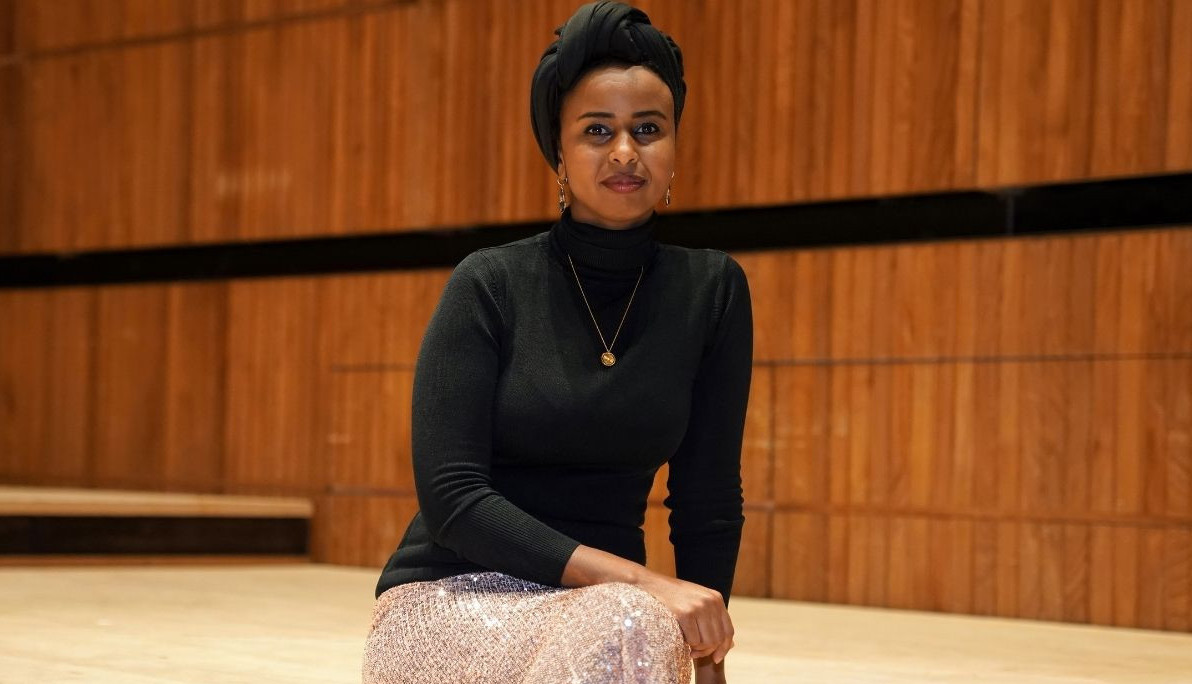British Somali writer Nadifa Mohamed has released her third novel The Fortune Men. Already, it has received widespread critical acclaim. In fact, Mohamed has become the first British Somali author to be included on the Man Booker Prize shortlist. The author previously won awards for her novels Black Mamba Boy (2010) and The Orchard of Lost Souls (2013).
Granta’s Best of Young British Novelists list included Mohamed in 2013. She also won several other awards including the Betty Task award and Somerset Maugham Award.
The Fortune Men follows the tragic true story of Mahmood Mattan, a Somali man wrongfully convicted for murder and hanged in Cardiff, Wales. Mattan was an acquaintance of Mohamed’s father, so the story holds great personal significance for her. An exploration of a deep miscarriage of justice, the story restores dignity to an innocent man.
Nadifa Mohamed writes from her roots
Mohamed’s first novel, Black Mamba Boy (2010), follows the semi-biographical account of her father’s childhood journey across Africa. Beginning in 1930s Yemen during the colonial era, the book sets out to challenge the Western narration of European colonies in Africa. Mohamed won the Betty Task award for it.
Her second novel, Orchard of Lost Souls (2013), won the Somerset Maugham Award. It takes place in Somalia on the eve of the civil war that broke out just after Mohamed emigrated to the UK. Mohamed endeavors to trace her roots and tell the history of Somali people to a wider audience.
“Somalis’ sense of identity seems more powerfully formed by the persistently negative representations in the media,” she says. Mohamed’s work redresses this injustice.
Mohamed has also published in The Guardian, Literary Hub and the 2019 anthology New Daughters of Africa, which includes her poetry. In 2018, she became a Fellow at the Royal Society of Literature. She then joined the Creative Writing Faculty of Royal Holloway, University of London.
Nadifa Mohamed: life uprooted
Mohamed was born in 1981 in Hargeisa, Somaliland. Like the subject of her latest novel, her father was a sailor in the merchant navy. At the age of four, anticipating the civil war that was to break out, her family moved to London. What transpired -the disappearing of all she had known- has had an indelible effect on her life. Her writing journey reflects this reckoning with her history.
Mohamed studied History and Politics at Oxford University. She cites Toni Morrison and Arundhati Roy, fellow voices of the powerless, as her primary influences. Other influences include Pushkin, the metaphysical poetry of John Donne and Sam Selvon, and black radical Claude Mckay.
Mohamed has referred to her writing process as ‘deep sea diving’. “I’ve got to be by myself in a very familiar environment and have a clear schedule before I can even go where I need to as a writer,” she says. For Mohamed, writing “feels like it must be part of a wider live conversation about power, and how to correct some of the wrongs of the past.”
“The Fortune Men” by Nadifa Mohamed
Mohamed’s latest book sets out to do exactly this. It follows the tragic story of Mahmood Mattan, wrongly accused of murder and hanged in Cardiff, 1952. Mohamed first came across the case in a newspaper article in 2004. She subsequently found out that her father had known Mahmood when they had both lived in Hull. “There’s the connection of him being Somali and someone that my father knew, that was of the same generation, almost like a parallel to my father, so there’s a strong emotional connection to him,” she says.
Mohamed spent years researching the novel. She visited Cardiff and interviewed people who knew Mahmood, and the relatives of the woman he was wrongly convicted of killing. She only began writing the novel after the death of her father. The novel traces Mahmood’s journey from British Somaliland, through to Wales as a sea-merchant and up until his final moments at the gallows.
Now, the author has brought this story to the masses, restoring some humanity to Mahmood: “His bones are still in this country; it was an unmarked grave and now he has a stone saying: ‘Killed by injustice’,” she says. Echoes of this injustice reverberate today. At the time of writing, the Grenfell Tower disaster and Windrush Scandal unfolded. To this, Mohamed says that writing is “quite a good way of engaging with things that otherwise make you feel quite powerless, or hurt or despairing.”
Get the The Fortune Men here.



